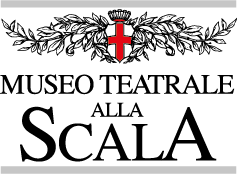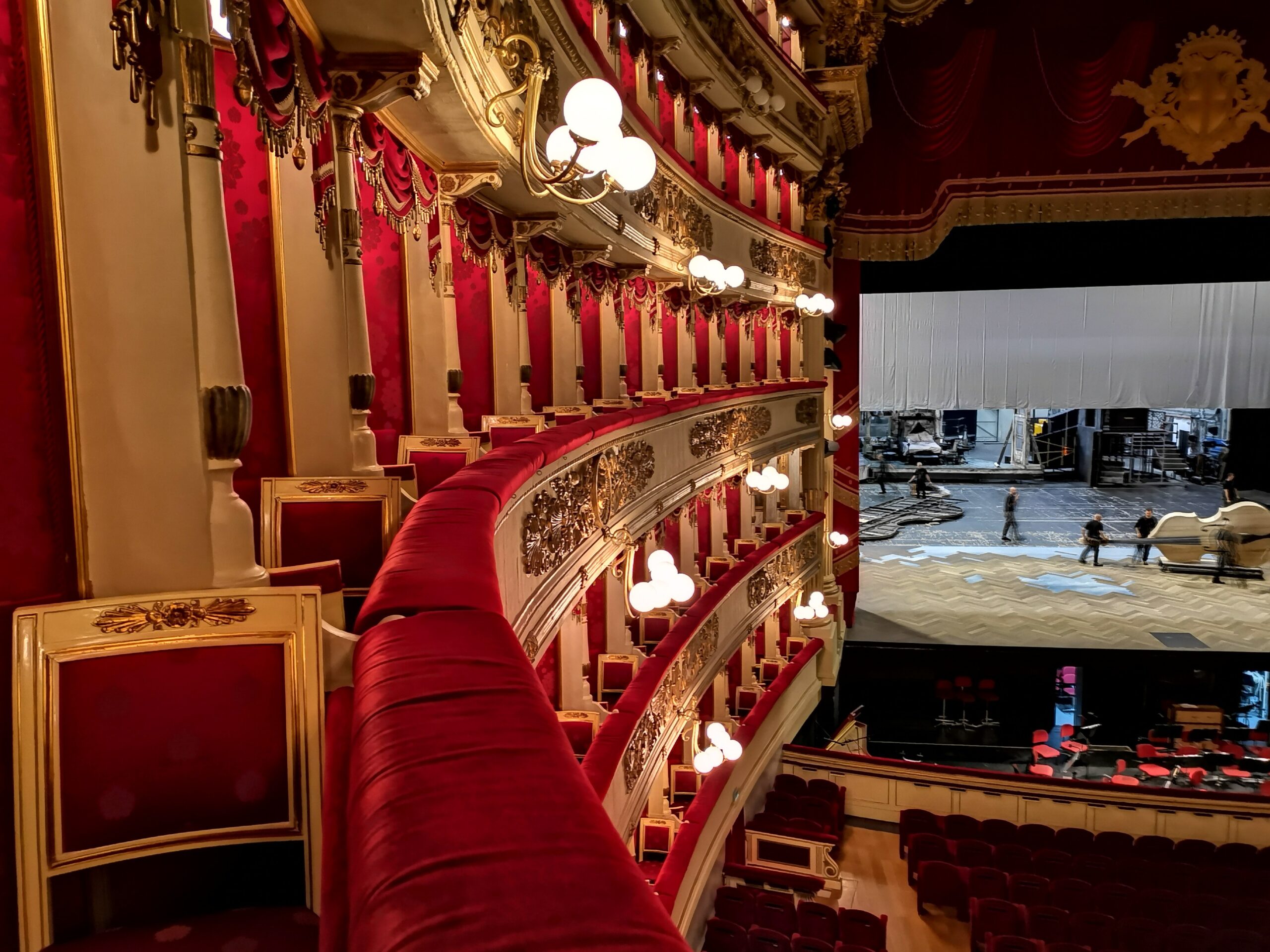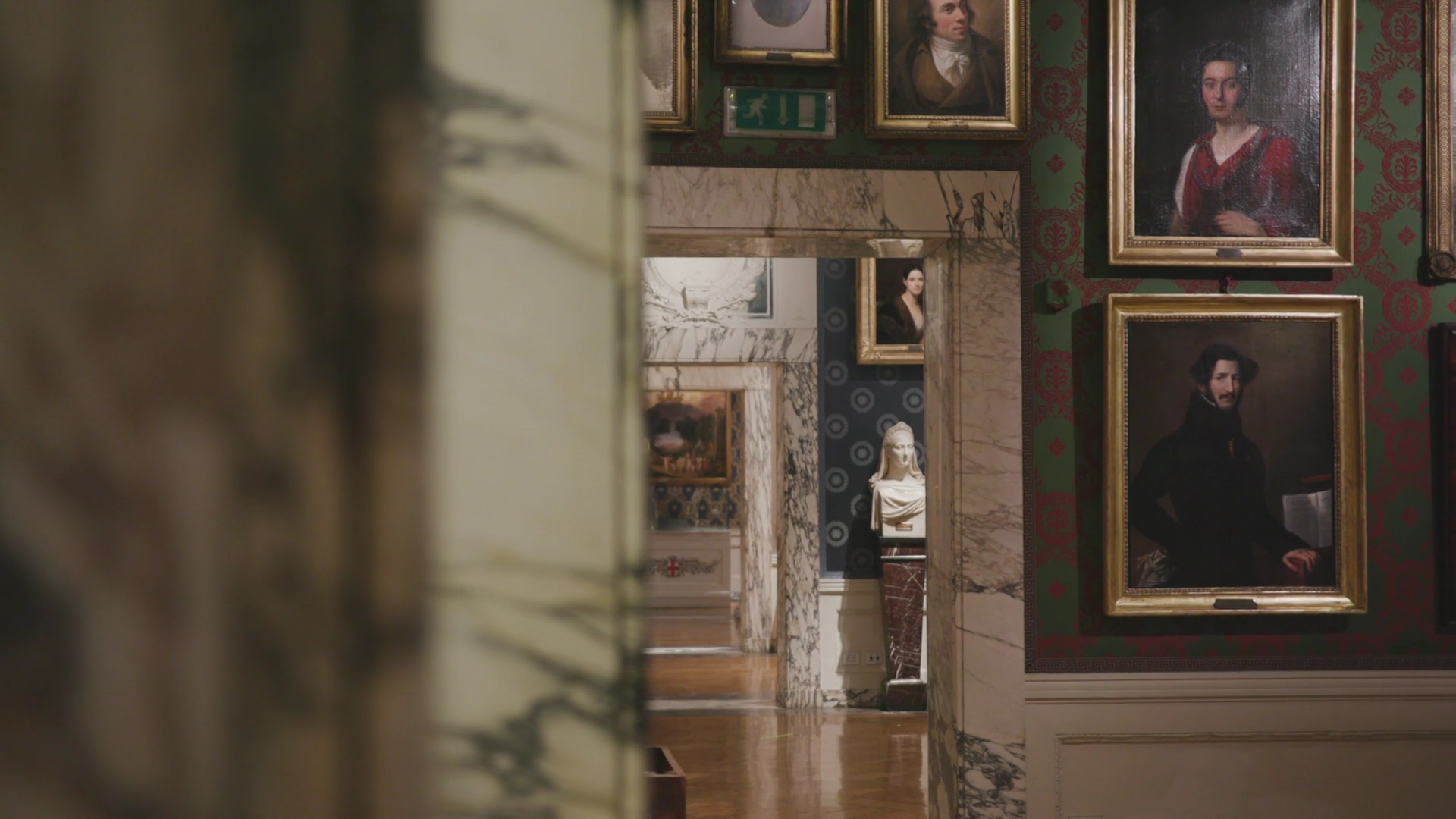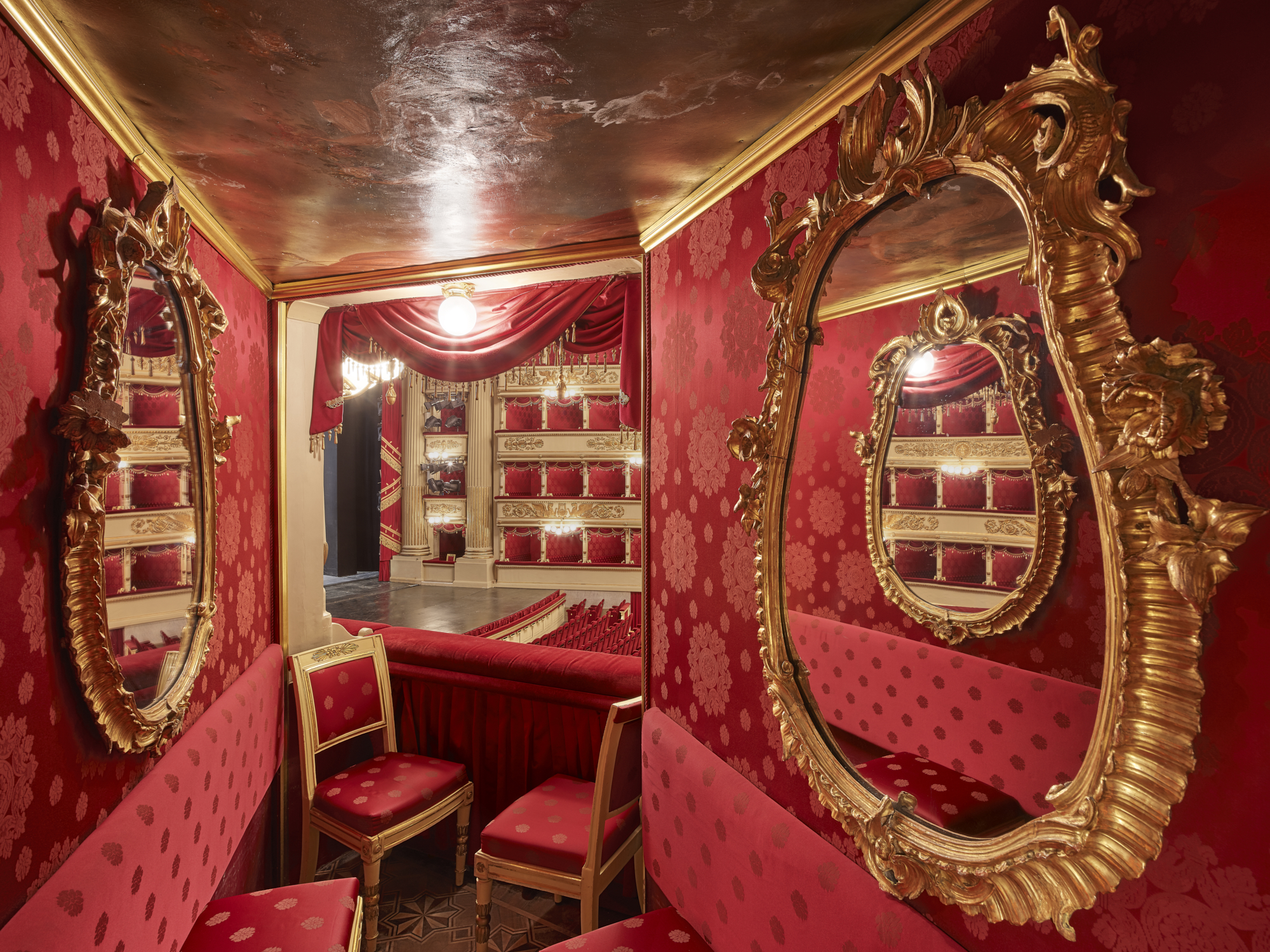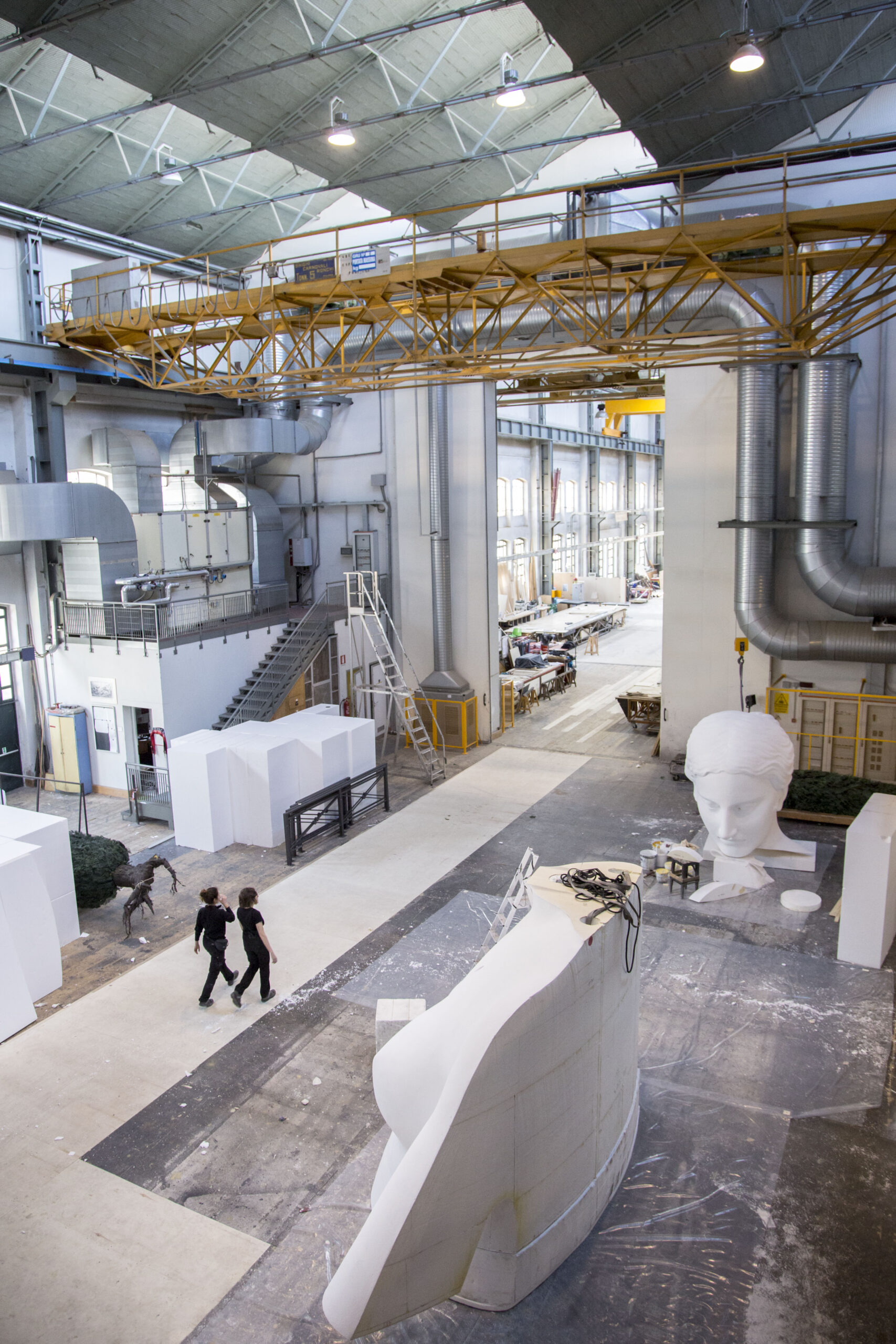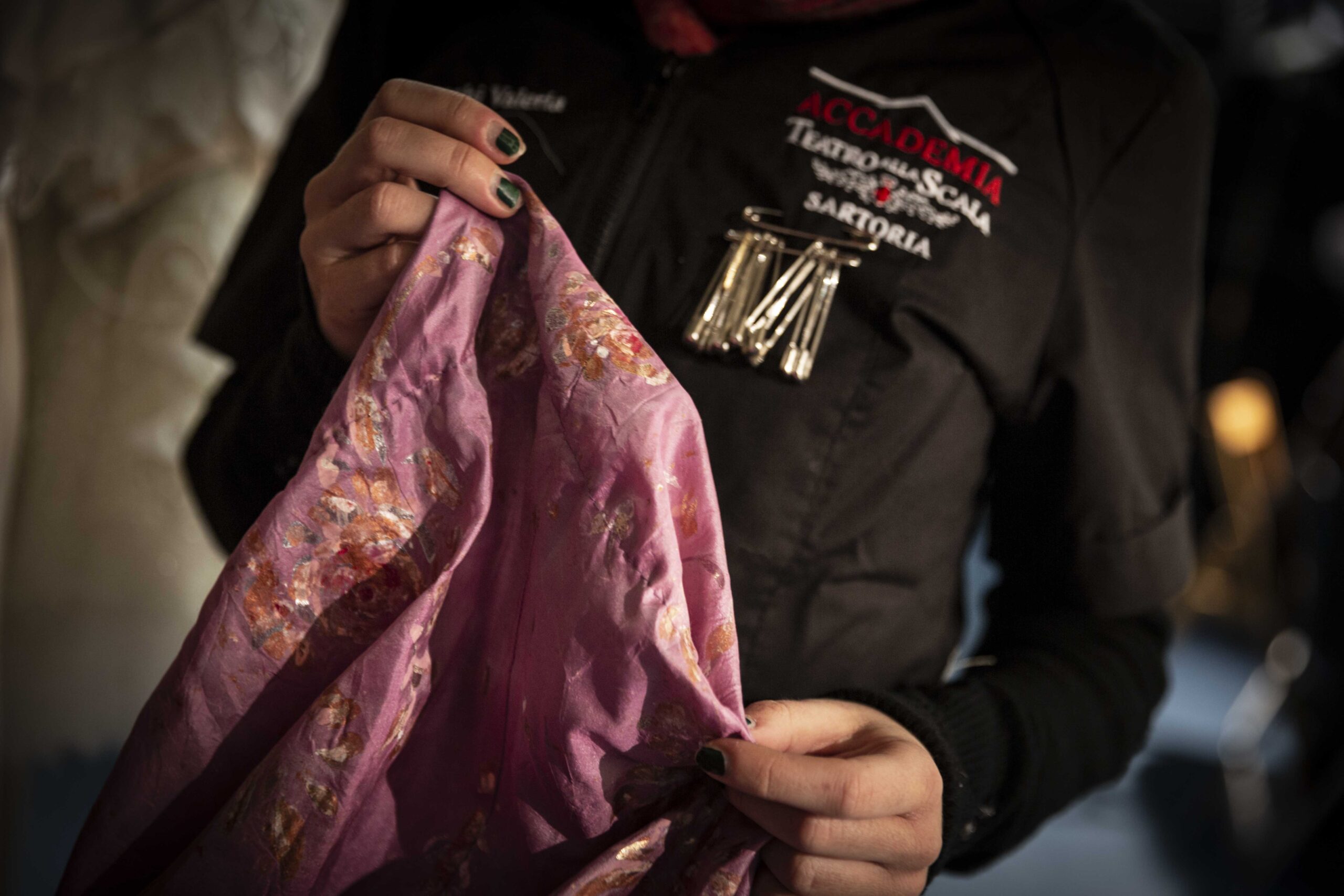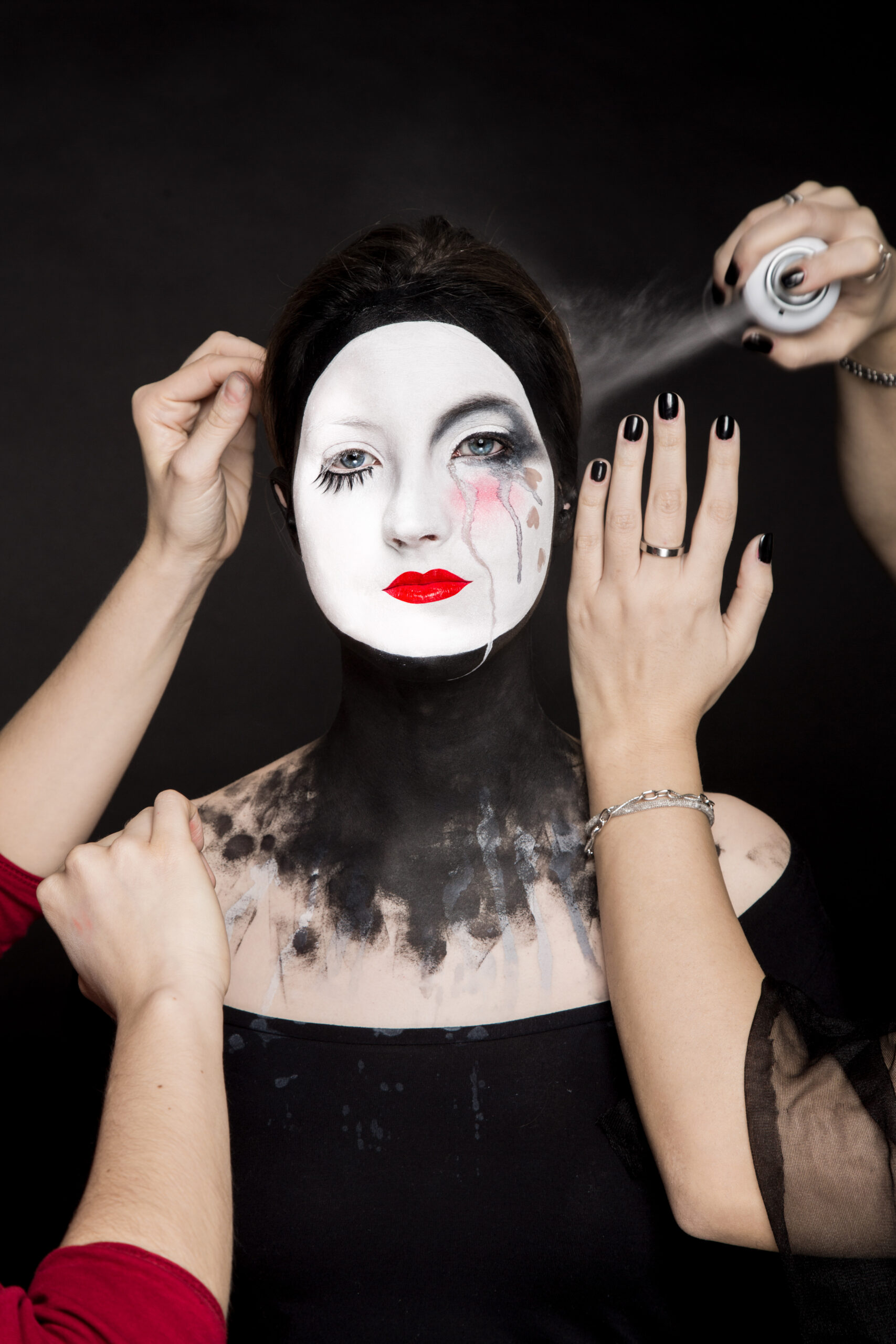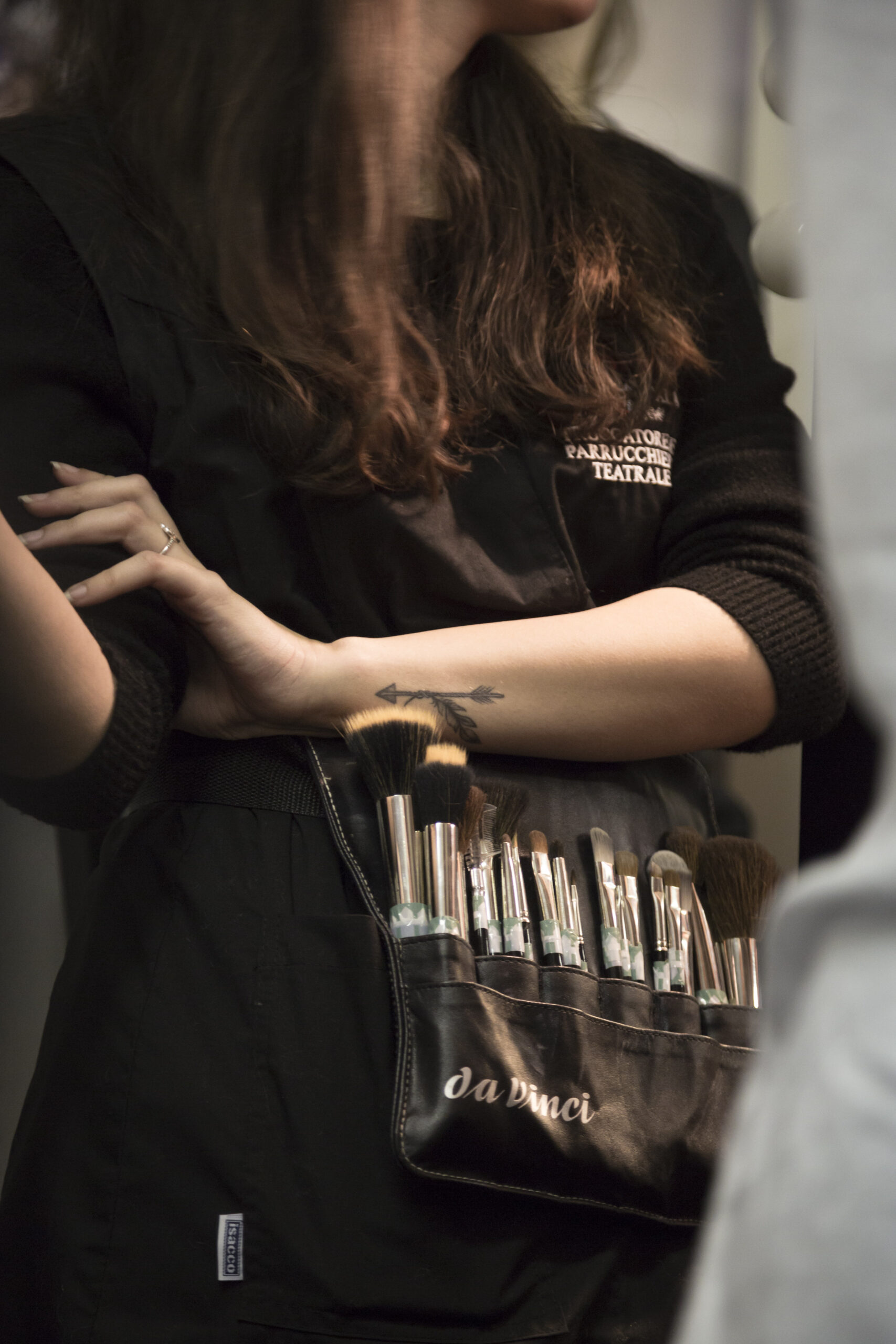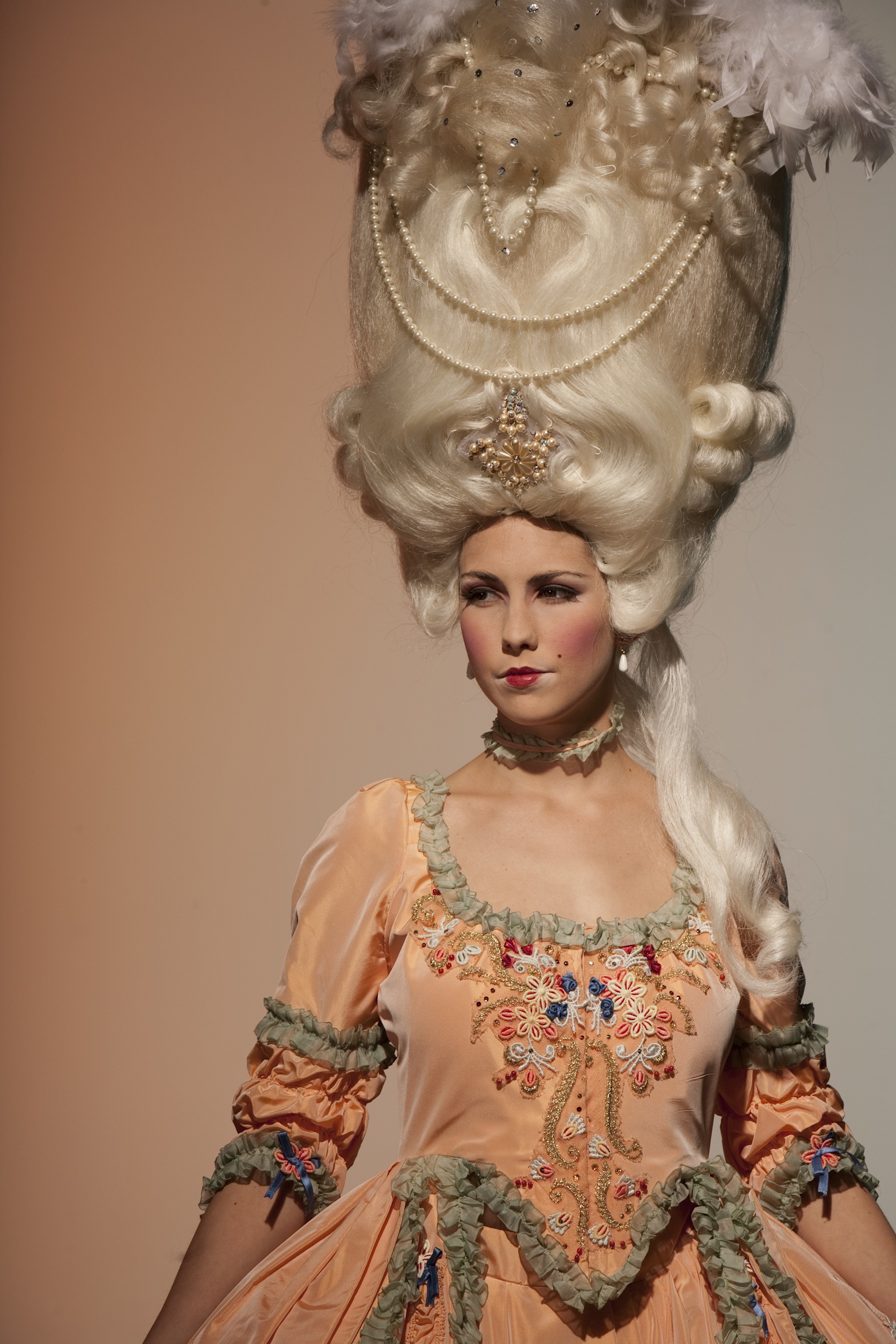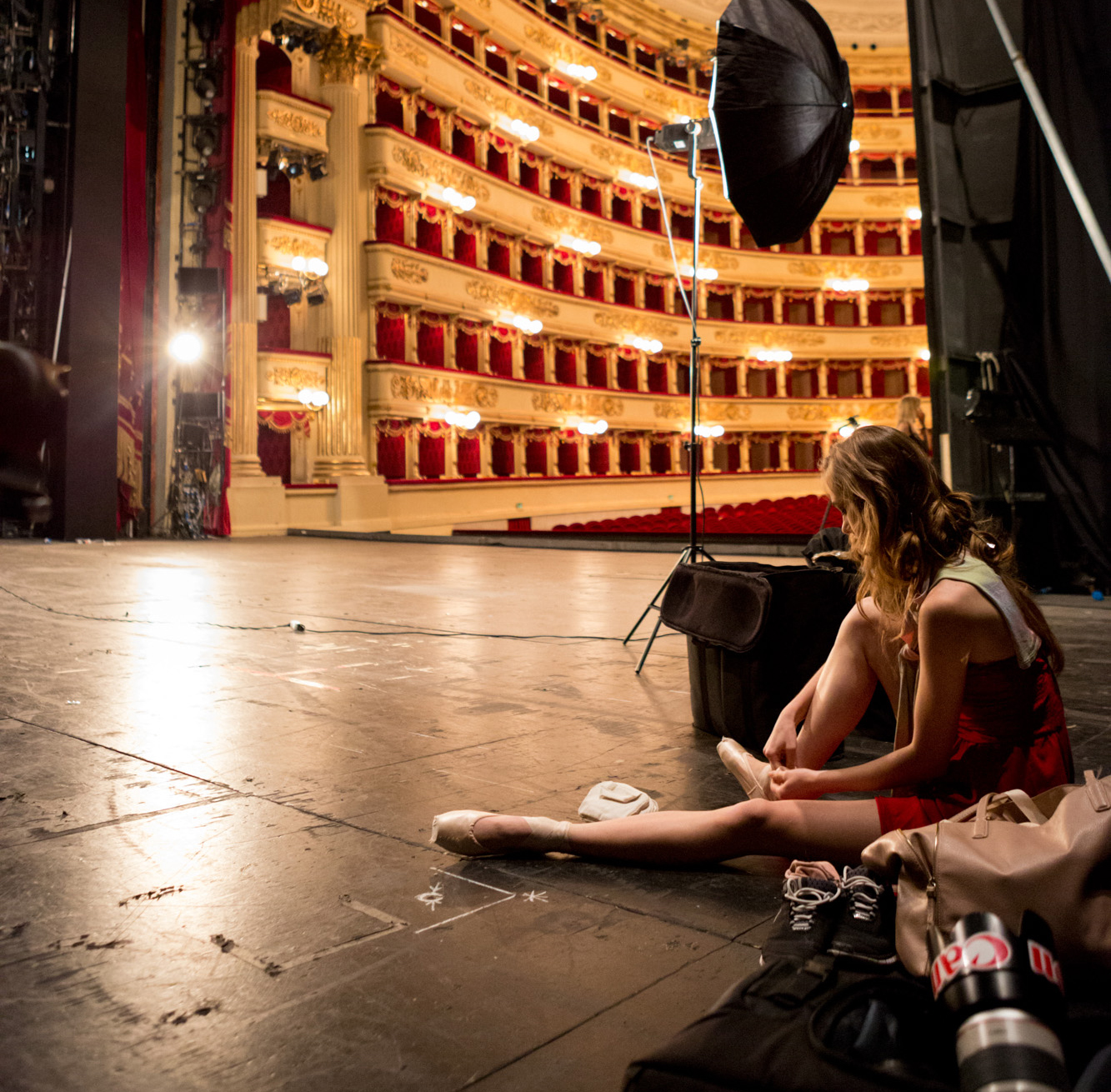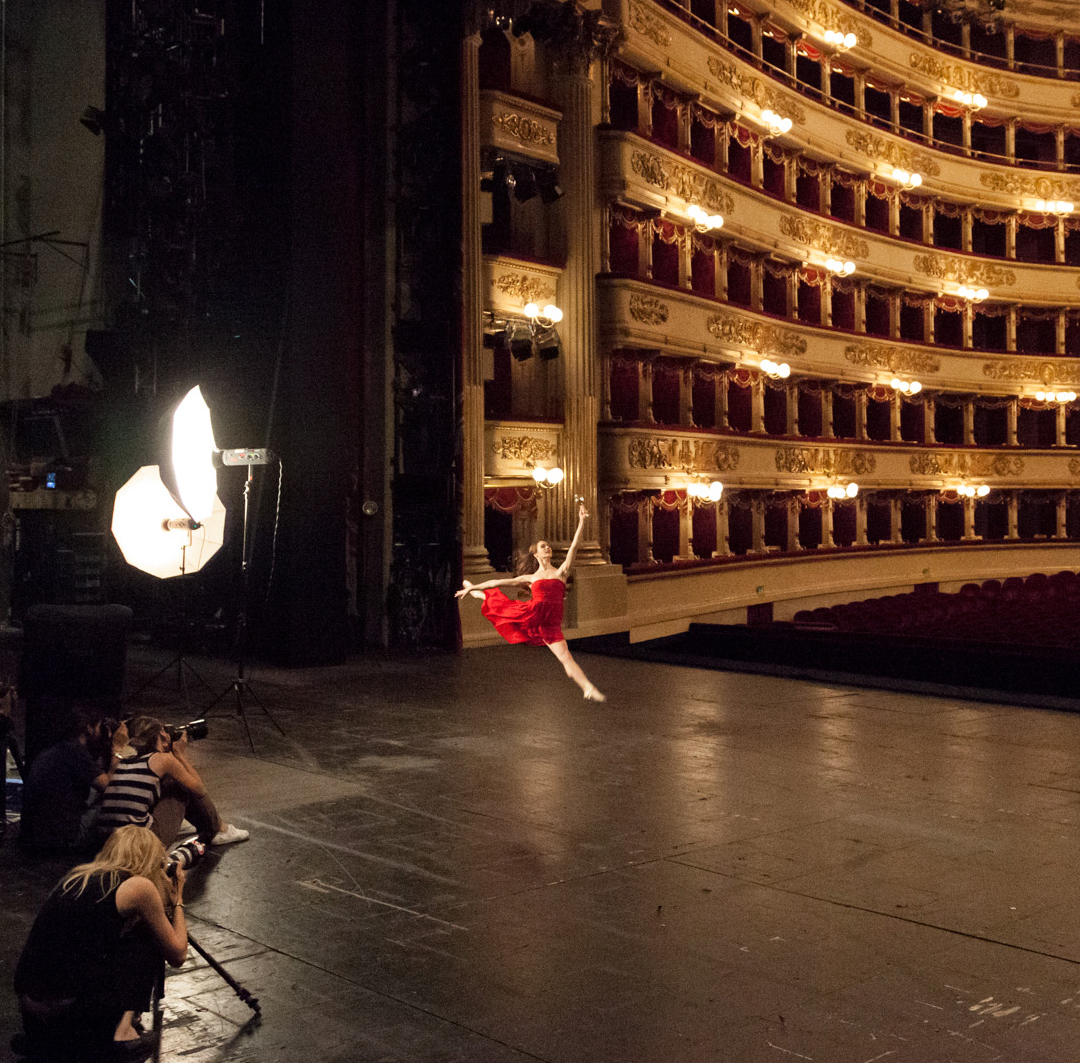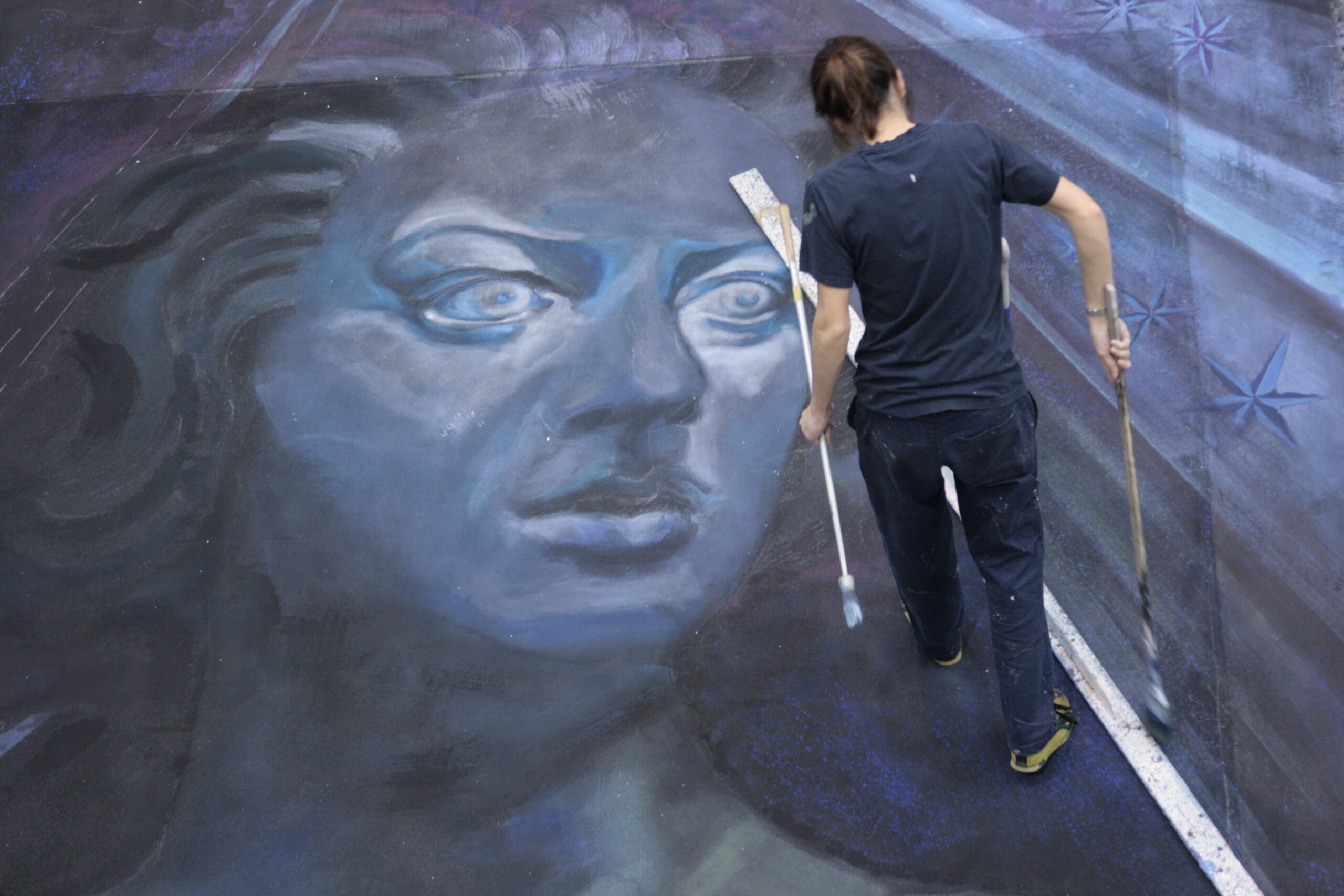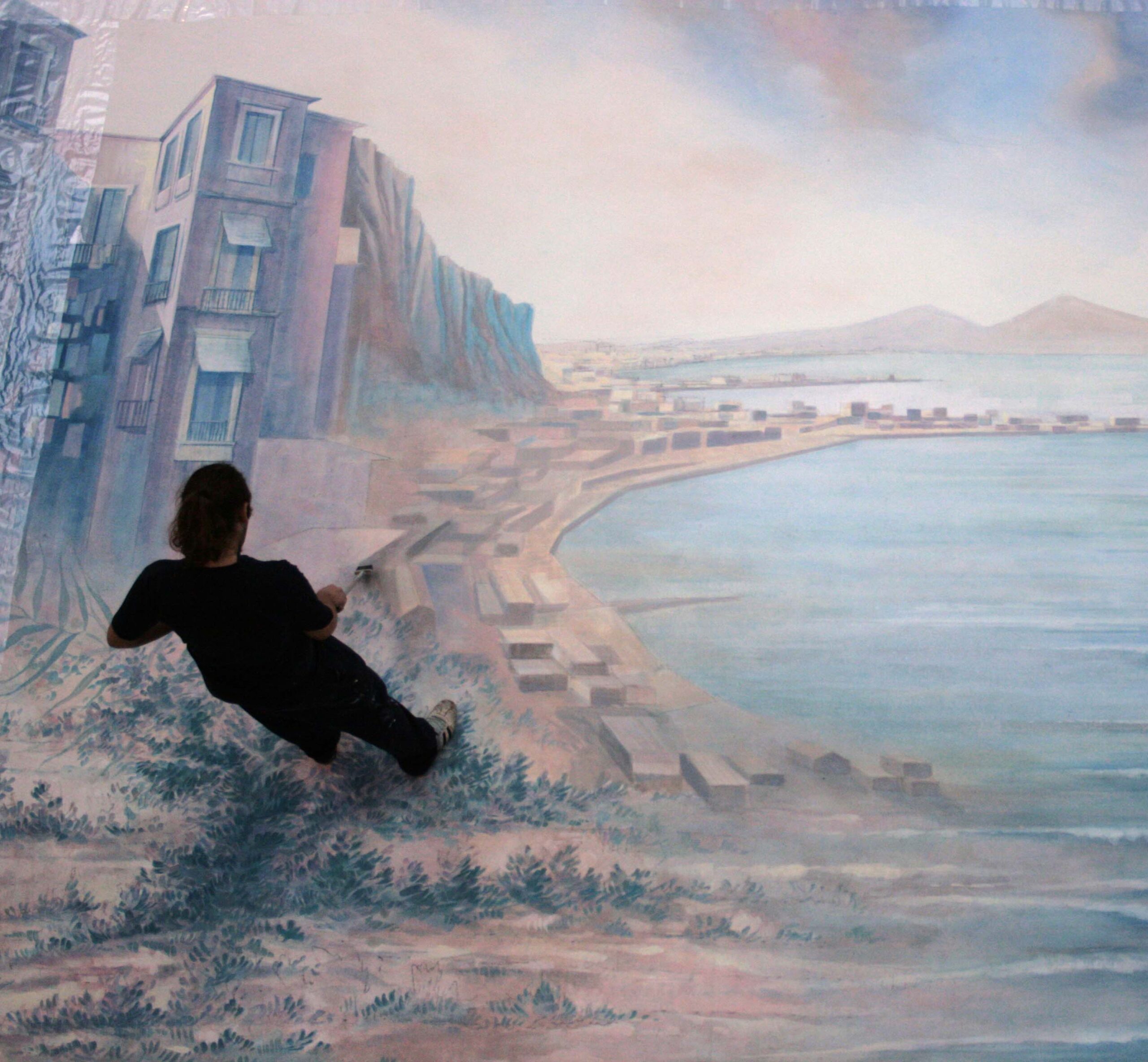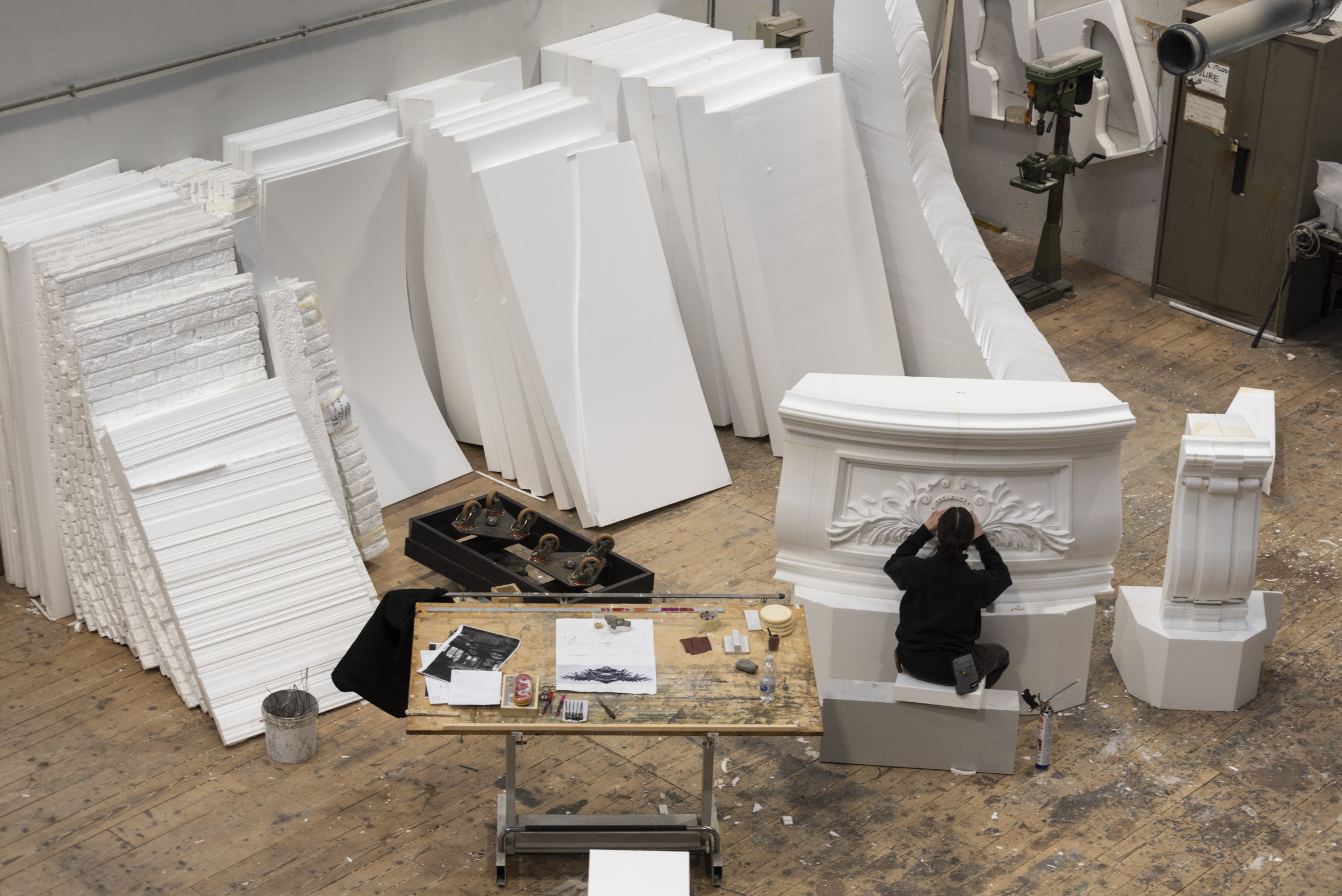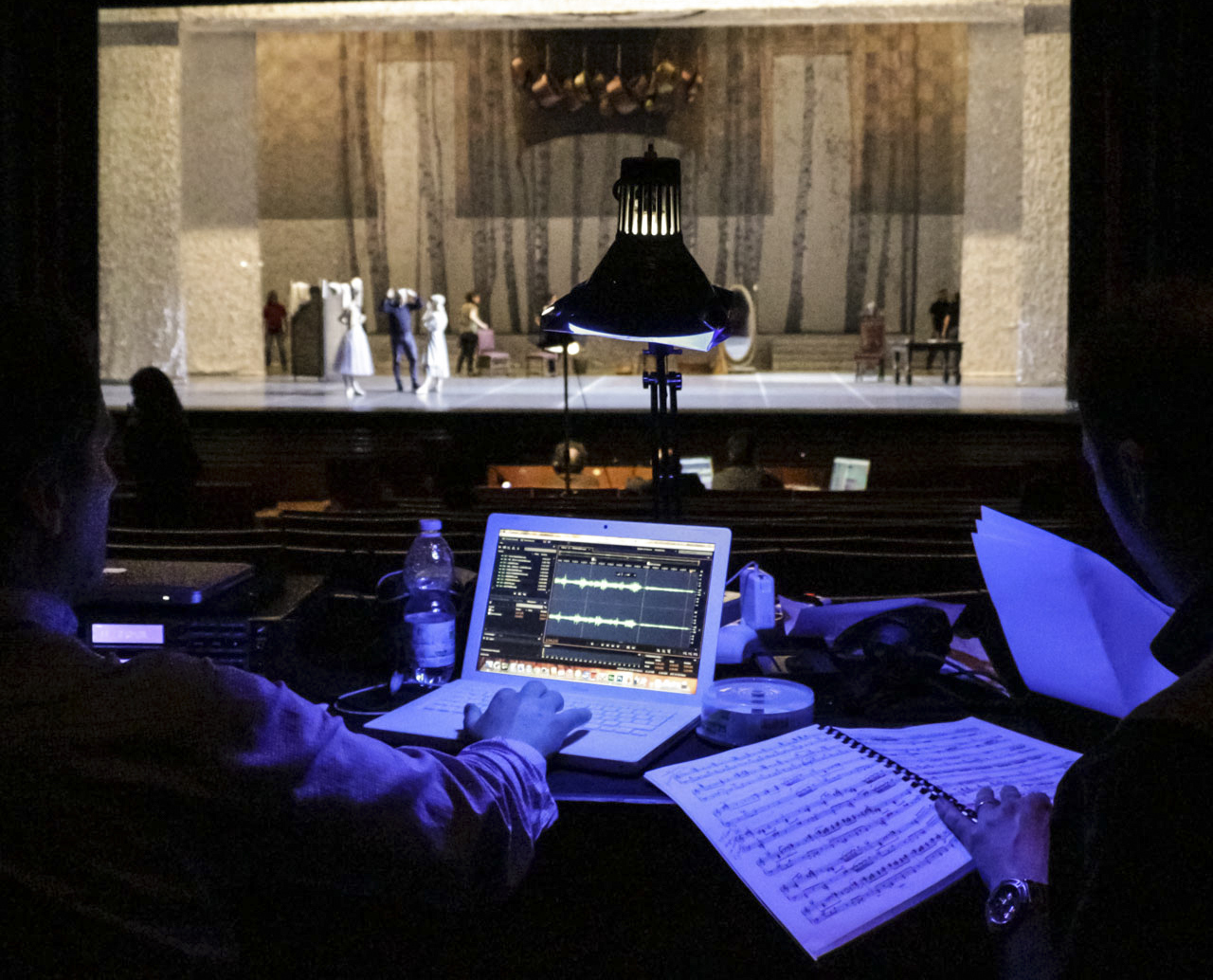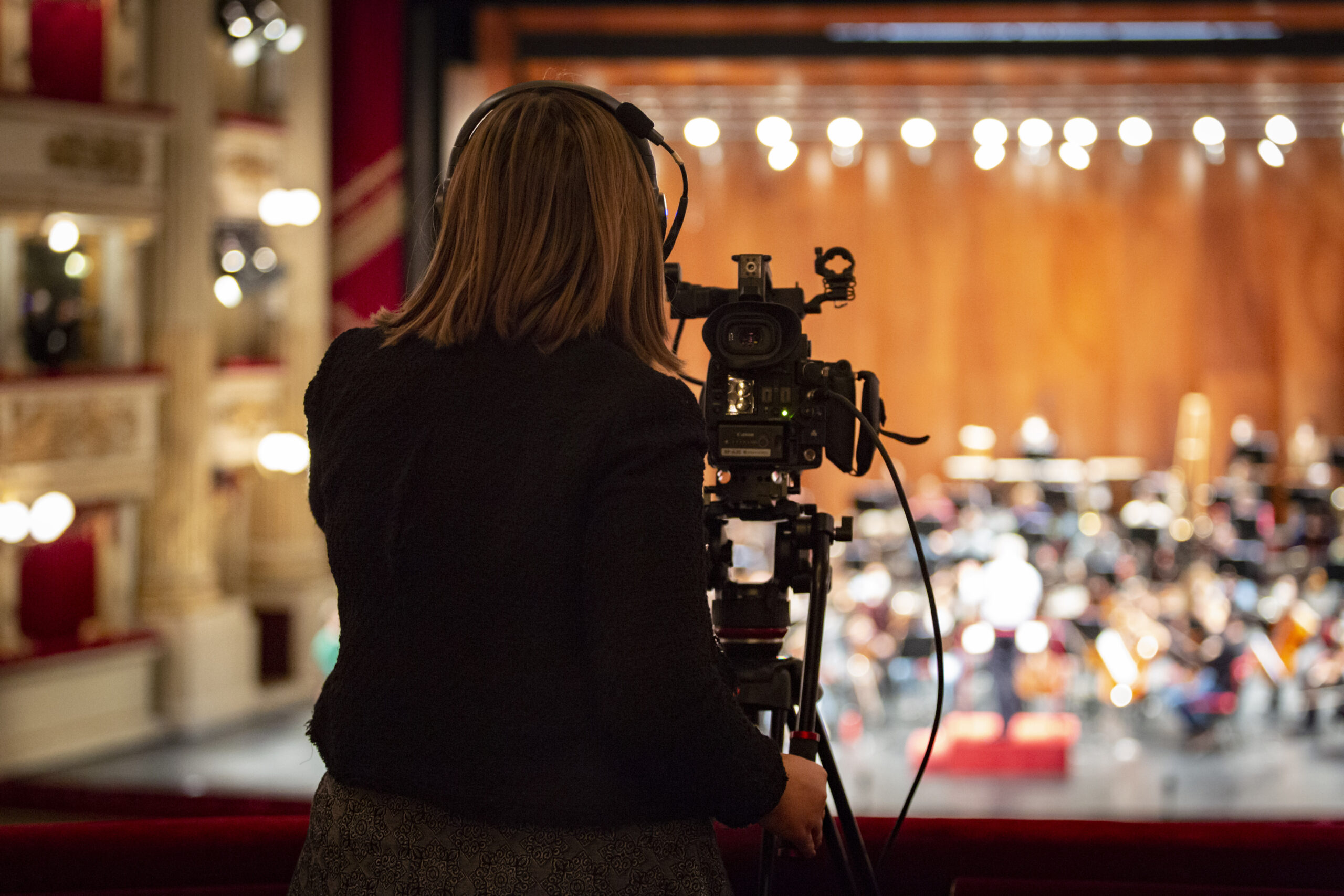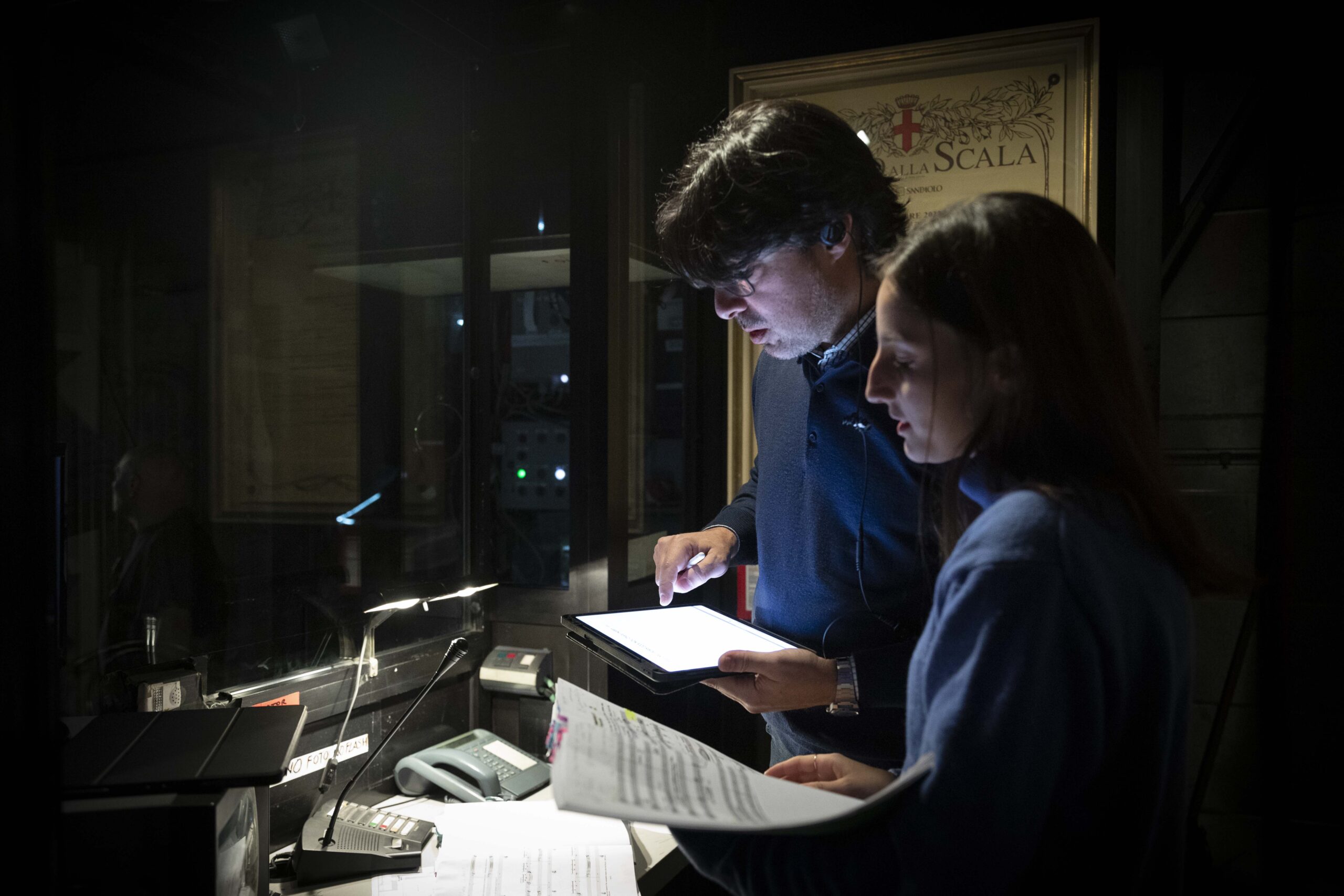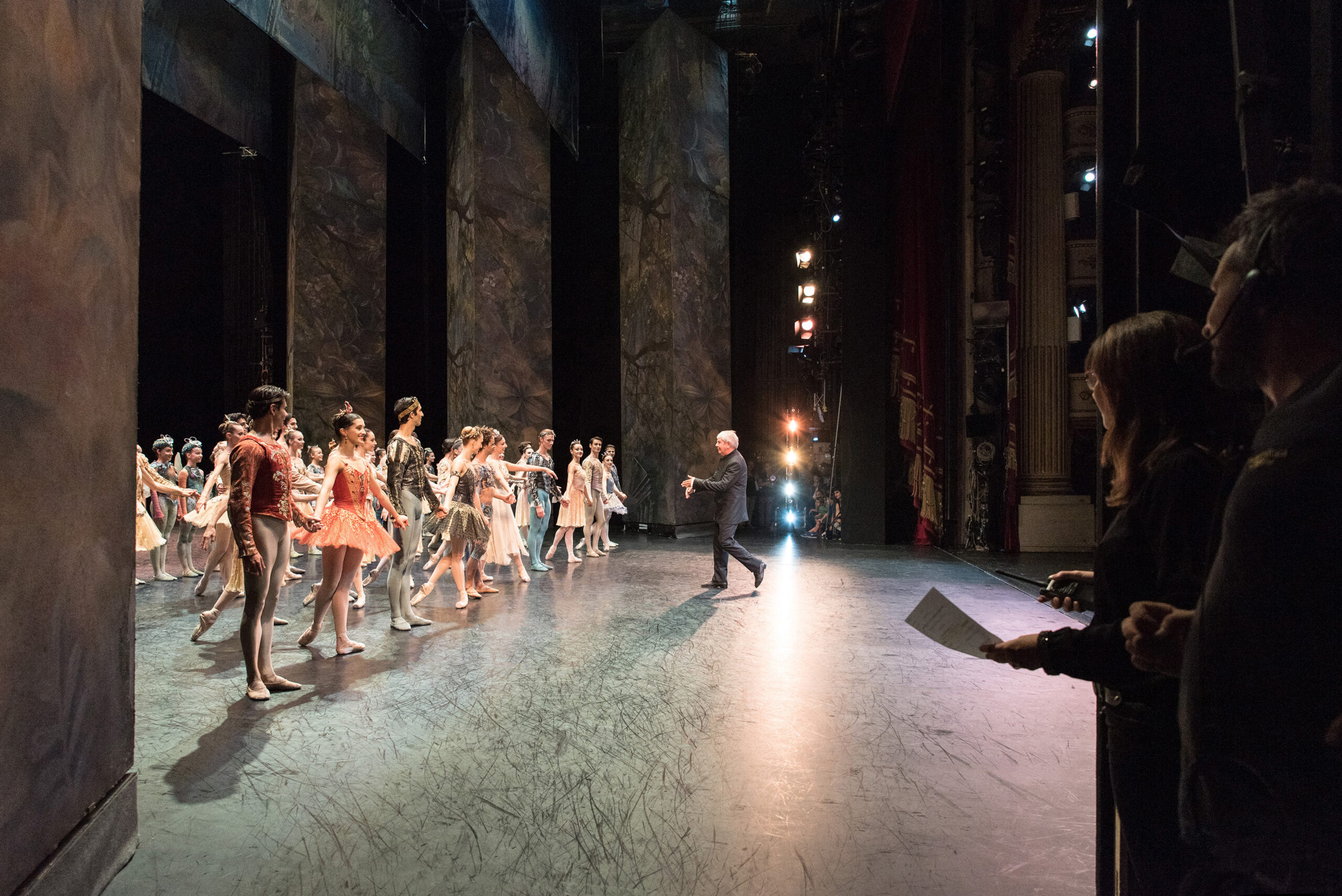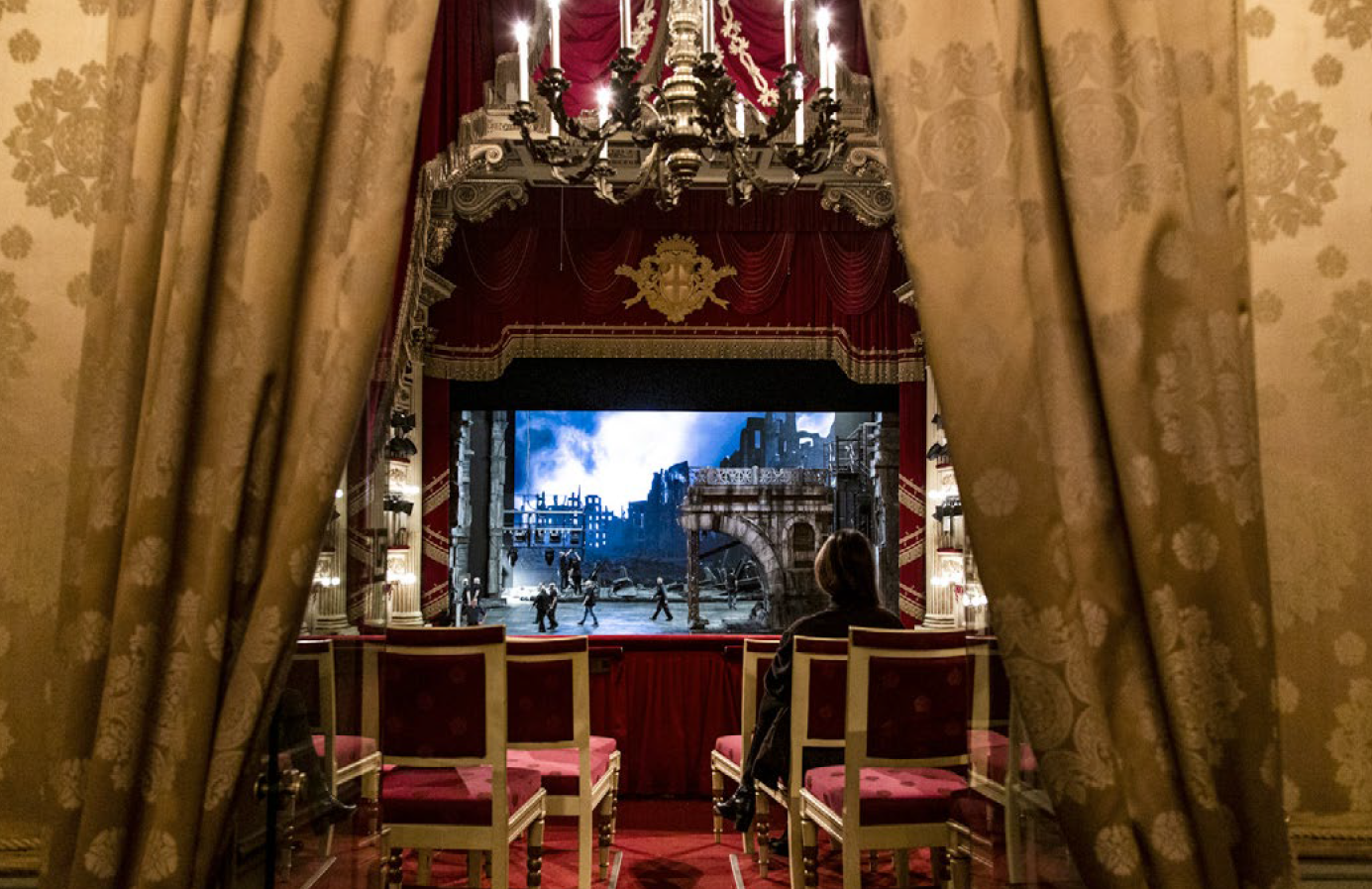
Students in enrolled classes will have access to an e-learning course consisting of five units, each with a final quiz to test their knowledge. Students must pass the test from the previous lesson in order to access the next lesson.
At the end of the e-learning course, students must produce a CLASS ASSIGNMENT. The teacher is responsible for verifying and validating the project work. Once the project is validated, the course is considered complete and the FSL hours can be certified. Certificates can be downloaded by the teacher.

THE MAGNIFICENT FACTORY
is worth 20 FSL HOURS
after validation of the final assignment
by the teacher.
Restricited Area login
E-LEARNING
Unit 1
Introduction. The history and value of Teatro alla Scala
and Museo Teatrale alla Scala, and the Ansaldo Workshops.
Teatro alla Scala is one of Italy’s most important and significant institutions: a global beacon of Italian culture, a treasure trove of history and a rich repository of stories and fascinating facts. Teatro alla Scala took its name from the Church of Santa Maria della Scala, which once occupied the site on which the theatre now stands.
The magnificent factory
The story of the birth and transformation of the Teatro alla Scala, from the fire of the Regio Ducale to the construction of the current theatre by Giuseppe Piermarini, up to the current expansions by Mario Botta.
Museo Teatrale alla Scala: History and fascinating facts
Without the effort of a small group of enthusiasts, this museum might never have existed. On 1 May 1911, Jules Sambon put his prestigious collection of objects from the world of theatre up for auction. But how was the considerable sum of 450,000 lire to be found? With help from the state and private citizens, the funds were raised, but only at the last minute…
In the boxes of Teatro alla Scala
When Teatro alla Scala first opened, it had almost 200 boxes, 155 of which were privately owned by Milan’s most important aristocratic families, who could use them just like any other property. For these so-called ‘palchettisti’ (‘box-seat owners’, from ‘palco’, the Italian for ‘box’), owning a Teatro alla Scala box was a social symbol, reinforcing their position and status. However, it was primarily a meeting place where international social, cultural and political connections could be made.
In the boxes of Teatro alla Scala: An interactive map
This interactive map lets you explore the boxes of Teatro alla Scala, find out which families owned them and learn the stories they keep, from the theatre’s inauguration in 1778 to its expropriation in 1920.
Resource available in Italian only.
In the heart of the theatre: The Ansaldo Workshops – Part 1
Director Davide Livermore guides us through the Ansaldo Workshops, where the theatre comes to life. A huge structure over 20,000 square metres divided into three large pavilions, housing most of the theatre’s stagecrafts: set design, sculpture, carpentry, mechanics, set assembly, scenery, tailoring and costume making.
In the heart of the theatre: The Ansaldo Workshops – Part 2
A behind-the-scenes tour of Teatro alla Scala’s Ansaldo Workshops, housed in the former Ansaldo steelworks in Milan since 20 February 2001. This imposing structure has an area of 20,000 square metres structure and is divided into three pavilions dedicated respectively to director Luchino Visconti, set designer Nicola Benois and costume designer Luigi Sapelli (known as ‘Caramba’).
How to become a theatre professional: The Academy
The Accademia Teatro alla Scala not only trains singers and dancers, but also set designers, tailors, make-up artists, hairstylists, wigmakers, lighting designers, stage technicians, stage photographers, sound technicians, video makers, and managers. This video explores the Stagecraft Department as well as training in the field of management.
TEST
Unit 2
The professions that give shape and identity to the theatrical character
Tailors, hairstylists, make-up artists and wigmakers at work behind the scenes.
Costumes
In the pavilion of the Ansaldo Workshops dedicated to tailoring, theatrical tailors work on actors’ costumes and the other textile elements.
The theatrical tailor
Through costume, the theatrical tailor helps shape the identity, character and personality of the various characters on the stage.
The student theatrical tailor
A student on the tailoring course walks us through her day of study involving working on costumes and costume fitting.
The theatrical make-up artist and hairstylist
The theatrical make-up artist and hairstylist helps make characters unique and specific, drawing on the nature of the character and the context created by the author of the work, as well as the director’s guidance.
The professional make-up artist and hairstylist
Creating a theatrical character is complex work which involves various make-up and hairstyling professionals. In this video, a Teatro alla Scala professional talks about their work.
The student make-up artist
A student on the hair and make-up artist course walks us through her day of study, sharing her personal experience and explaining why it’s important to acquire technical and specialised skills along with transversal and relational ones.
The special-effects make-up artist
These professionals have mastered the techniques of special-effects make-up required in the many entertainment sectors, from cinema and television to musical and dramatic theatre.
The student special-effects make-up artist
A student on the special-effects make-up course walks us through her day of study, explaining how she came to be passionate about special effects.
The wigmaker
The wigmaker creates and maintains the wigs and hair pieces in the theatre.
The student wigmaker
A student wigmaker walks us through his day of study working on wigs and hair pieces, an activity in which, as he says himself, creativity is essential.
TEST
Unit 3
The professions that bring the stage to life
The lighting technician and the stage technician are two essential figures for bringing a theatrical performance to the stage.
The lighting designer, the lighting technician and the theatrical electrician
In a theatrical performance, the lights play a fundamental role, not simply because they make a scene visible but because as a true instrument of artistic expression.
The lighting designer
As a professional figure, the lighting designer has evolved naturally from what used to be the lighting technician, the lead electrician who manages the theatre’s lighting systems. Today, technology, systems and the use of light in stage productions have changed dramatically. In this video, a Teatro alla Scala professional talks about their work.
The stagehand
Stagehands work together with the set designer and the director to manage the movement of everything that is observable on stage, using spaces and technologies that were unthinkable at Teatro alla Scala before 2004. For example, this allows three to four sets to be accommodated at the same time.
In this video, a Teatro alla Scala professional talks about their work.
The set designer
The set designer is a professional who supports the entire creative and technical process behind a theatrical production, developing specific skills related to the different materials and the best technical solutions to adopt.
How a theatre set is developed
Backstage, or more precisely in the Ansaldo Workshops, is where the stage design of a production develops. It involves a complex set of artisanal processes, handed down from generation to generation, and artistic skills.
The set designer
The job of the set designer requires different skills and consists mainly of two parts: A more technical and analytical component, for evaluating the initial project and how to make it happen, and a more artistic part, involving drawing, sampling materials and creating backdrops, if required. In this video, a Teatro alla Scala professional talks about their work.
The stagehand and the prop master
The ultimate stage technician, the stagehand is responsible for moving scenery elements onto and off of the stage, either by operating scenery wagons or by using the rigging system.
The theatrical sculptor
The theatrical sculptor is in fact a set designer and maker. Sculptors need to know the history of the art, the technology and the materials, but they also need the curiosity to experiment with increasingly innovative solutions.
In this video, a Teatro alla Scala professional talks about their work.
TEST
Unit 4
The professions that document and communicate theatre life
Photos, videos, audio, and new media: How theatre life is communicated.
The stage photographer
The stage photographer captures a theatrical performance forever by photographically documenting every stage of the production, from rehearsals to staging, not only for archival purposes, but also to share the excitement behind a production with the audience.
The sound technician
Various figures operate in the field of sound technology: sound engineers, sound directors, microphone technicians, studio and theatrical sound engineers, music laboratory and sound archives management technicians, post-production and live technicians. The skills of the sound technician can be used in any musical context.
The student sound technician
A student on the sound technician course walks us through his typical day of study, revealing the activities he usually carries out in the context of his professional training.
The videomaker, the video operator, the video content creator
The video operator is a professional who works in every area of the production, whilst also applying their skills to other areas: From documenting the different phases of a production and its staging to collaborating with artistic directors, press offices and marketing offices to communicate and promote an event, or producing audiovisual content of various kinds as videomakers.
The student video operator
A student on the Photography, Video and New Media course walks us through her typical day of study, revealing the activities she usually carries out as part of her professional training.
TEST
Unit 5
The professions that make the theatre work
Stage and production manager.
The stage manager
The stage manager oversees and coordinates all technical and service activities of a production.
A day with a stage manager
A student on the Stage Management course walks us through her typical day of study, and reveals the activities she usually carries out as part of her professional training.
The stage manager
The role of stage manager can be playfully defined as falling somewhere between a traffic warden and tourist resort entertainer. The role is in fact to coordinate and supervise all the phases of a theatrical production, not only the ones ‘that you see’, but all the backstage phases in particular.
In this video, a Teatro alla Scala professional talks about their work.
The production manager
The production manager is a professional figure with strong managerial and organisational skills who works in various contexts of a production.
TEST
ADDITIONAL RESOURCES
Teatro alla Scala Teaches at the Accademia Teatro alla Scala
How
Interviews with Teatro alla Scala professionals
Catalogue of the photography exhibition ‘Colpo di scena. Dalla A di attrezzista alla S di scultrice’ curated by Fondazione Bracco and Accademia Teatro alla Scala.
Resource available in Italian only.
REQUEST A VISIT TO THE ANSALDO WORKSHOPS
To delve deeper into the topics presented in the FSL, we suggest visiting the Ansaldo Workshops at the Teatro alla Scala.
NOTICE
STUDENTS must upload the PROJECT WORK by JULY 7, 2026.
TEACHERS must validate the PROJECT WORK by JULY 14, 2026.
PROJECT WORK
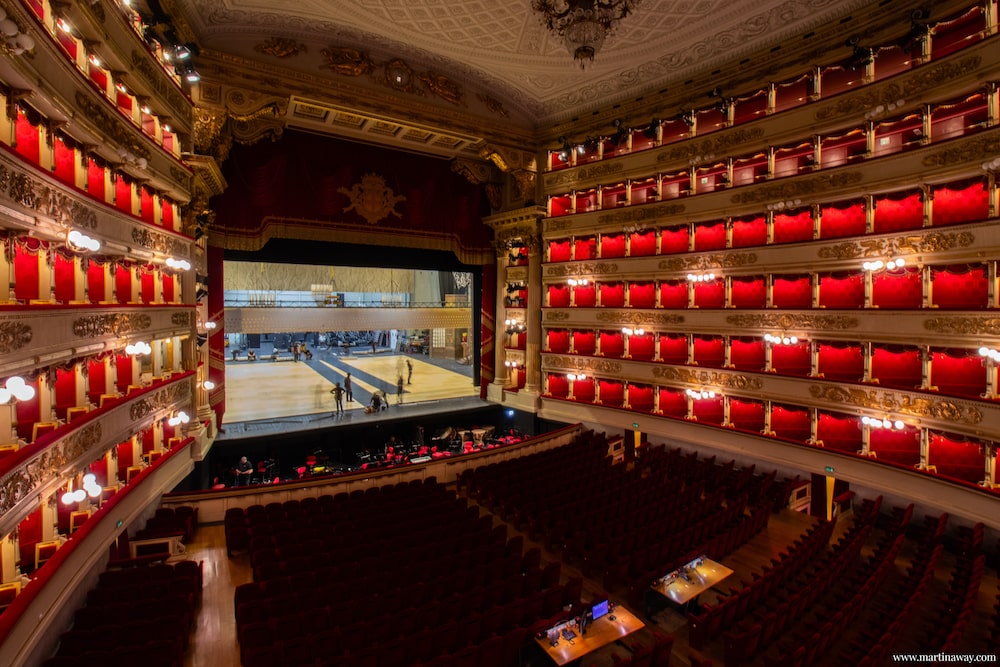
Once the course units and verification tests are complete, students can focus on the final class assignment. Once the assignment is uploaded to the platform, the FSL can be certified.
For The Magnificent Factory project, students must plan and create a video presentation and promotion that uses storytelling to describe Teatro alla Scala, focusing on its artistic, cultural and social value.
The aim of the video is for young people to take a curious, original and passionate approach to sharing with others their age, in Europe and beyond, what they have learned about the theatre, its stagecrafts and the combination of tradition and innovation, ‘exporting’ the Made-In-Italy excellence that Teatro alla Scala represents.
The video must be made in both Italian and English. For example, you can use Italian as as the main language and add English subtitles, or vice versa. The Instructions file includes suggestions and practical guidance on making the video.
THE VIDEOS WILL BE ASSESSED BY THE MUSEO TEATRALE ALLA SCALA. THE BEST ONE WILL BE PUBLISHED ON THE THEATRE’S OFFICIAL WEBSITES AND COMMUNICATION CHANNELS, making its authors the effective spokespersons of this important institution for young people in other countries.
The class assignment must be uploaded by each individual student so that the FSL can be certified once the teacher has completed their assessment.


